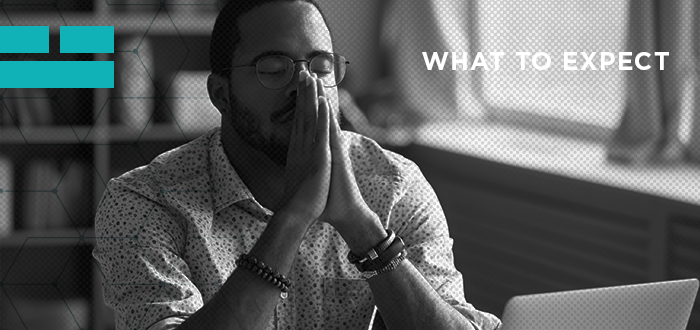It’s okay to not be okay.
I wanted to say that first and then speak openly. This post is highly personal, because vulnerability only happens when it is invited. So I want to openly invite you, my youth minister friends, to consider your own well-being today.
How are you? Tired? Stressed? Worn out? Is there something nagging you, something weighing heavily within you? Are you harboring a hurt? Are you covering up bitterness with busyness? Are you masking a secret sin with false courage or humility? Or are you secretly coping with something you are not proud of but are too scared to talk about?
Perhaps you’re not even sure what you feel. You just know that you’re frayed and questioning if you should seek out help from a professional. That’s okay. Actually, it’s more than okay: it’s good.
It’s good to seek professional help, even if you are unsure of what that will mean.
Ministers need counselors to minister well.
So, if you are feeling anxious or curious about how your first counseling session might go, here are some words to encourage you:
Release the stigma.
If there ever was a season to feel less “bad” about seeking professional help, it’s now. The last year has been more stressful and disorienting than any other we can remember.
More weight and pain means new measures need to be taken. Not all health issues can be solved by resolve. Getting help is a sign of health, not weakness. You may need to take a new step for your own health and well-being. Seek professional care, and know that we are proud of you for taking the steps you need to take.
Don’t resist accountability.
I went far too long without getting the help I needed, because I started rationalizing my problems on a spectrum of other people. I knew I wasn’t right, but I justified being off-kilter on the scale of other people.
If you are fighting to talk more openly about something that is heavy, hurting, or maybe even rotting you from the inside, seek intentional help. Don’t try to balm the hurt on your own. If you are not well, it will get worse until you get the right help to get better.
Be prepared to talk about yourself.
A counselor, above all things, is a professional listener. When you meet with them they really want to hear about you. It’s a good kind of selfishness, and it’s part of the work.
Take it seriously sooner rather than later.
Don’t wait for 40 minutes to speak up in a session. Come ready to share, to maximize your time, and to bare your soul. It’s okay: they can take it. This is a professional relationship. They signed up for it, and they want you to give it your all.
Give yourself time.
Buffer time on either side of the appointment to get there and to get right. Give yourself enough time to travel there if you’re meeting in person, or get ready if you have a video-based appointment. You need to create the transition time, as best you can, to prepare to get into the work and to take some time afterwards to process the work.
Don’t feel that the first counselor has to be a fit.
Just like you tell your graduating seniors to give the new church/thing a couple of tries, give your counseling time a couple of go-rounds to see how you feel. It may be new, weird, and different. Don’t give up after two tries, but also don’t give up after one counselor. Do your best research to meet with someone who is highly recommended or whom you trust, but if they don’t fit, try again. Counseling is deep, relational work. You need someone you can respect, trust, and can commit to meeting with on a regular basis.
Allow what you are doing to open you up.
It is good to allow the work to work. After a few sessions, you should find ways to open in sharing in other arenas. Whether with your spouse for the first time in a long time or with other trusted friends, one of the benefits of professional counseling is the confidence it creates to speak more openly about what is troubling you.
Don’t expect too much (or be too hard on yourself).
Counseling is a lot like going to the gym, but it’s a mental gym. Exercising some of those muscles is going to cause ache before you notice gains. You may or may not feel an immediate difference. The important thing is to mark that you went, journal how you felt after you did, and to schedule another session for 2-6 weeks later.
You are invited to be more vulnerable. You have all the permission you want to get the help you need.



